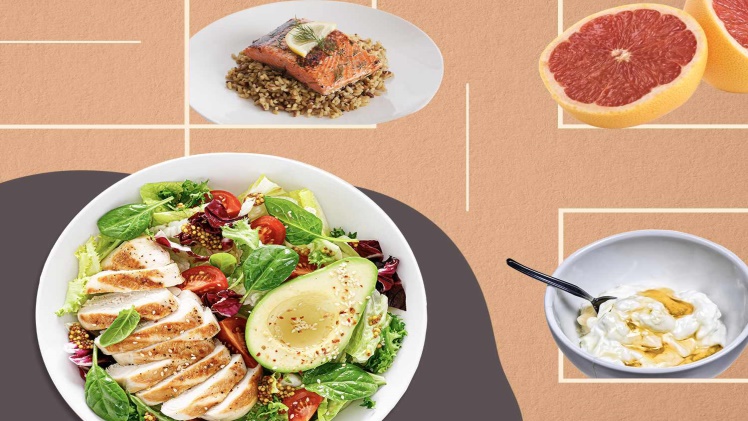Eating healthily is one of the most important things you can do to look after yourself and stay in top form. A healthy diet plan can help you maintain balanced nutrition and provide your body with essential vitamins, minerals, and other nutrients that are necessary for optimal functioning. Creating a personalized diet plan doesn’t have to be complicated – by understanding the basics of nutrition, making sensible choices when choosing food, eating plenty of fruits and vegetables, and drinking plenty of water, you can easily put together an effective meal plan that will keep you feeling your best. In this article, we’ll show you how to make a healthy diet plan that fits your lifestyle and helps you reach your goals.
Understand The Basics Of Nutrition:
A healthy diet plan is essential for a healthy lifestyle. Knowing the basics of nutrition and how to make sensible choices when choosing food can help you develop a nutritious, balanced diet plan that will keep your body functioning optimally.
In order to put together an effective diet plan, it is important to understand basic nutrition principles. This includes learning about the different macronutrients – carbohydrates, fats, and proteins – which are essential sources of energy. It also involves understanding the importance of micronutrients such as vitamins and minerals, which play a vital role in maintaining overall health. Additionally, you should be aware of the different food groups and their nutritional value; for example, whole grains are generally high in fiber and provide complex carbohydrates for energy while lean proteins like fish or chicken offer essential amino acids for muscle growth and repair.
Make Sensible Choices When Choosing Food:
When creating a healthy diet plan, it is important to make sensible choices when choosing food. This means selecting foods that are nutrient-dense and low in unhealthy fats, added sugars, and sodium. One way to help ensure you are making the best possible dietary choices is to create meals that include a variety of lean proteins, complex carbohydrates, and healthy fats.
When choosing proteins for your meals, opt for lean cuts of meat such as skinless chicken breast or turkey breast, fish such as salmon or tuna, eggs, tofu, tempeh, and beans. These contain essential nutrients such as vitamins B6 and B12 which help with energy production and metabolism. Choose carbohydrates that are rich in fiber such as whole grains like brown rice or quinoa. Fiber helps to fill you up longer so you don’t feel hungry soon after eating. Healthy fats like olive oil, avocado, and nut butter add flavor to your meals while providing essential fatty acids that support brain health.
Eat Plenty Of Fruits And Vegetables:
Eating plenty of fruits and vegetables is an important part of maintaining a healthy diet. Fruits and vegetables are packed with essential vitamins, minerals, antioxidants, and fiber that provide numerous health benefits. Eating a variety of different colors of fruits and vegetables can help ensure that you get all the necessary nutrients your body needs.
When it comes to creating a healthy eating plan, aim to include at least five servings of fruits and vegetables each day. For example, try having a banana for breakfast, adding chopped veggies like tomatoes or bell peppers to your lunchtime salad or sandwich, snacking on carrot sticks or apples as a snack throughout the day, having fresh fruit for dessert after dinner, and drinking vegetable smoothies.
Overall, consuming an adequate amount of nutrient-rich fruits and vegetables is key to developing a healthy diet plan. Make sure to buy organic whenever possible and avoid any processed food items so that you are able to reap all the nutritional benefits these foods have to offer!
Drink Plenty Of Water:
Staying hydrated is an important part of maintaining a healthy diet. Drinking plenty of water helps the body to stay balanced and function properly. Not only does water help to keep us hydrated, but it can also help to regulate our appetite, reduce cravings for unhealthy foods, and keep our metabolism running efficiently.
It’s recommended that adults drink at least eight glasses of water each day. This can be in the form of plain water, or in the form of herbal teas, infused waters, or other low-calorie beverages such as sparkling water or low-sugar juices. All of these options are good choices if you’re looking to stay hydrated without taking in too many unnecessary calories from sugary drinks.
Finally, remember that staying hydrated is vital for overall health and well-being! Make sure to include plenty of fluids in your daily diet plan so that you’re getting enough water each day.
Conclusion:
Making a healthy diet plan is an important step to take if you want to improve your overall health and well-being. Remember that it all starts with understanding the basics of nutrition and making sensible choices when choosing food. Eating plenty of fruits and vegetables, as well as drinking plenty of water are essential elements in any healthy diet plan. With careful planning, you can create a balanced meal plan that provides all the nutrients your body needs.

